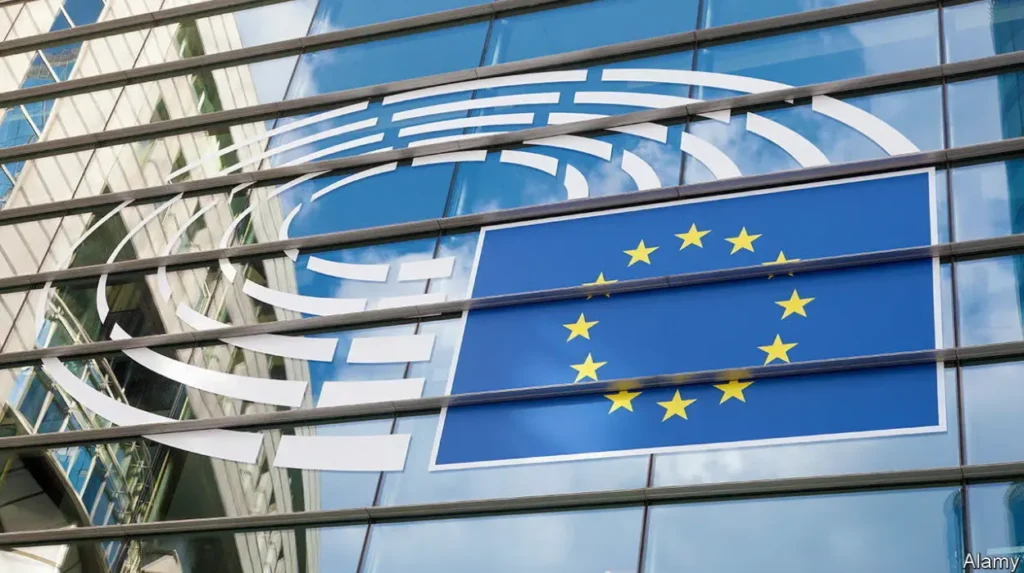Lobbying is a central yet complex component of the European Union’s legislative process. As the EU navigates its ambitious policy agenda for 2025, lobbyists representing diverse social, economic, and corporate interests are playing a pivotal role in shaping the direction and substance of legislative proposals. Understanding this role, as well as the dynamics and strategies involved, is essential for grasping how EU policies evolve and which stakeholders influence them.
Lobbyists and the EU Legislative Process
Lobbyists operate at multiple stages of the EU policymaking process, from early agenda-setting to final decision-making. The 2025 EU legislative agenda covers a broad array of priorities, including sustainability, digital transformation, economic recovery, and social equity. By engaging with policymakers in the European Commission, European Parliament, and Council of the EU, lobbyists aim to ensure that their interests are reflected in policy formulation.
Research shows that lobbying influence varies by the stage of policy development. Economic and corporate lobbyists tend to dominate direct contacts with legislators and bureaucrats, particularly in phases involving drafting and negotiations. Conversely, social interest groups often focus on public engagement phases, leveraging grassroots campaigns to build societal support and apply indirect pressure. Access to policymakers, sustained relationships, and strategic coalition-building enhance lobbyists’ effectiveness in shaping legislative outcomes. The ability of lobbyists to anticipate and engage with the European Commission’s annual Work Programme the document that sets the future legislative agenda is particularly critical. Early engagement allows lobbyists to influence legislative priorities before formal proposals are published, maximizing their impact.
Corporate Influence on Sustainability Policies
One of the most contested arenas in 2025 is the EU’s sustainability agenda. Corporate lobbying is significantly shaping debates over environmental regulations, due diligence rules, and human rights standards embedded in EU legislation. For example, trade associations representing major sectors like energy, finance, oil and gas have actively pushed to dilute the EU Corporate Sustainability Due Diligence Directive (CSDDD), seeking to soften obligations for companies to monitor and address human rights and environmental impacts within their supply chains.
This lobbying activity contrasts with companies in sectors such as food and clothing, which tend to support stricter due diligence rules due to high public scrutiny of their supply chains. Notably, trade associations often take a more conservative stance than individual companies, amplifying opposition to robust regulation through intensive lobbying efforts. Small and medium-sized enterprises (SMEs), especially in Germany, have also weighed in, sometimes advocating for stricter EU-wide standards to ensure fair competition.
The ongoing debate highlights tensions between efforts to simplify regulations for economic competitiveness and commitments to sustainability and accountability. These dynamics illustrate how corporate lobbying can both advance and obstruct progress on environmental and social governance within the EU’s legislative framework.
Dimensions of Lobbying Influence in the EU
Several conditioning dimensions shape the lobbying landscape in the EU, affecting lobbyists’ influence capacity:
- Access to Decision-Makers: Direct channels to key policymakers facilitate timely and impactful interventions during proposal drafting and negotiations.
- Resources and Expertise: Well-funded lobby groups with technical knowledge are better positioned to produce evidence-based arguments and alternative proposals.
- Public Engagement and Media: Lobbies that can generate public attention and align their messaging with societal values gain leverage through indirect pressure.
- Coalitions and Networks: Forming alliances around specific issues broadens the base of support and legitimizes lobbying claims.
These dimensions interact across the six phases of the EU’s policy cycle from agenda-setting through monitoring implementation affecting how lobbying strategies are designed and executed. For example, while corporate lobbyists emphasize direct advocacy and expert consultations during legislative drafting, social interest groups focus on mobilizing public opinion during consultation phases.
Transparency and Accountability in Lobbying
Given the substantial influence lobbyists wield, transparency in lobbying activities is crucial to uphold democratic legitimacy. The EU has established various measures, including a Transparency Register that requires lobby groups to disclose their objectives, funding sources, and interactions with EU institutions. These efforts aim to reveal who is shaping legislation and ensure balanced representation of public and private interests.
Despite these initiatives, challenges remain. Trade associations often dominate lobbying intensity, potentially overshadowing individual companies and civil society voices. Moreover, the complexity of lobbying activity including indirect influence and informal networks can obscure accountability.
Consequently, ongoing calls for more rigorous transparency and stronger enforcement mechanisms continue to shape public discourse about lobbying in the EU, emphasizing the necessity of aligning lobbying practices with broader democratic and human rights principles.
How Corporate Lobbying Shapes the EU’s Sustainability Agenda
Corporate lobbying is quietly reshaping Europe’s sustainability ambitions, particularly concerning the EU’s human rights and environmental protection policies. Research mapping corporate lobbying shows that sectors such as energy, finance, and oil and gas have actively sought to weaken aspects of pivotal legislation like the Corporate Sustainability Due Diligence Directive.
Key points from this research reveal that:
- Trade associations lobby more intensively than individual companies and tend to oppose stricter rules.
- Publicly exposed sectors like food and clothing support rigorous due diligence to mitigate reputational risks.
- SMEs sometimes advocate for stronger rules to maintain a level playing field.
- Controversial issues include civil liability provisions and the scope of mandatory value chain scrutiny, including obligations to end harmful business relationships when impacts cannot be mitigated.
The EU’s regulatory simplification drive, however, threatens to rollback some of these progress measures, generating concern among responsible businesses and civil society. This dynamic encapsulates the strategic tug-of-war in policymaking, where corporate lobbying influences both advancement and potential dilution of sustainability standards.







